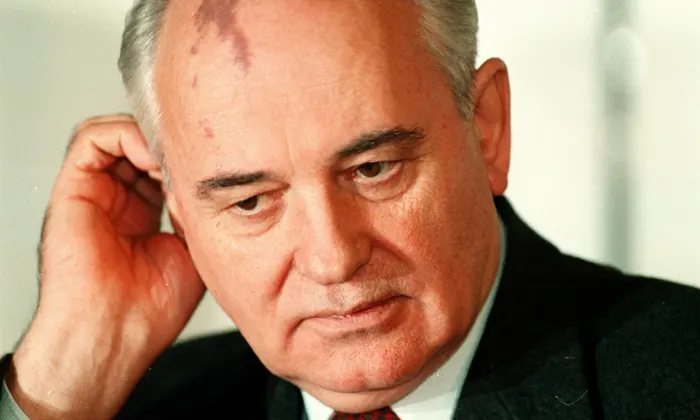“Americans have a severe disease — worse than AIDS. It's called the winner's complex.” -- Mikhail Gorbachev
“He did a lot, but people now in our country hate him. People want to be happy fast. Immediately. The way of Gorbachev was the slow way to freedom, to real freedom. And he didn’t have enough time.”
- Vladimir Gubarev, a retired journalist
Humanist psychology describes humans as inherently good animals driven to do evil by environmental stimuli.
I am not a student of history. Hence I do not know how would history judge Gorbachev. So a few questions - was he the last Tsar? Human history is often unpredictable and is it not true that 'the history and historical change' usually also follow patterns.
How should one finally judge Gorbachev?
In his own words, “History teaches us, when the times are ripe for change and the government refuses or is unable to change, either society starts to decay or a revolution begins.” (On My Country and the World)
Gorbachev was perhaps 'merely' there around us when what was anyhow ready to happen finally happened. Are things so simplistic?
Though he headed the Soviet Union for a mere six years, his rise, his commanding control over things and his fall -- all happened when we in teens. So strong was his persona that it is near impossible to forget and ignore him and his demise -- just as a death of a global politician. Maybe he was more than all that! Many might have forgotten, but it was he allowed 'democratic elections' in countries such as Poland.
Slowly, this exposed the much hyped communist economy's malady.
Crucially he ended the Cold War with China and also resolved the old boundary dispute. He also made the famous remark - “Let the boundary row midstream of the River Ussuri”.
There were other developments too. He ought to be credited for 'liberating' Eastern Europe, established finally friendly relations with the US and other Western countries. He handled countries such as Israel and Pakistan differently.
As the last Soviet tsar, he also withdrew from Afghanistan. Generally, we judge an era by the men/women in power. Gorbachev's career was perhaps an exception.
"The debate about Gorbachev’s historical imprint will not be about what happened during his incumbency, but about his impact on what followed it," says an article in 'The Jerusalem Post'.
To others perhaps the demise of Gorbachev stirs a peculiar thought process -- the past and also the future.
In 1986 during Delhi press media, he was quizzed - "What are your suggestions for improving an understanding between the Soviet Union and Pakistan and what irritants you think have prevented good-neighbourly friendly relations?” His response was unique.
“As for our proposals on establishing a zone of peace and security in the Indian Ocean, they (Pakistan) is/are close to the views of the Indian Government presented by Mr Prime Minister (Rajiv Gandhi) here."
He further had said - “We are ready to participate in a process which would lead to security for all the littoral states, including Pakistan. This would meet the interests of the entire Indian Ocean community, the interests of development and cooperation."
It is also argued that perhaps 'economic perestroika' finished Gorbachev. But others would say he emerged in the Soviet Union and the world scene with the two concepts that comprised almost a gospel – the democratic glasnost and the economic perestroika.
In Russian language, “Perestroika” means “restructuring”; while “Glasnost” is the Russian word meaning “openness”.
Importantly, the sum and substance is his brave and candid 'admission' that the system he inherited was gravely ill. There are other facets of the story as well.
His foreign minister Eduard Shevardnadze could also have been forgotten. But he had a significant role in ending the Cold War.
Gorbachev of course dominated events and created a few in shaping the East Bloc’s future during the years of his leadership.
Why did Gorbachev's twin reform formulae fail?
One point of view is -- When Gorbachev carried out his reforms and loosened the system, he set in motion forces that few could have predicted. Things gradually became virtually impossible to control.
Sound Bytes: Quotes from Gorbachev
“If what you have done yesterday still looks big to you, you haven't done much today.”
“I believe in the cosmos. All of us are linked to the cosmos. So nature is my god. To me, nature is sacred. Trees are my temples and forests are my cathedrals. Being at one with nature.”
“The market is not an invention of capitalism. It has existed for centuries. It is an invention of civilization.”






No comments:
Post a Comment